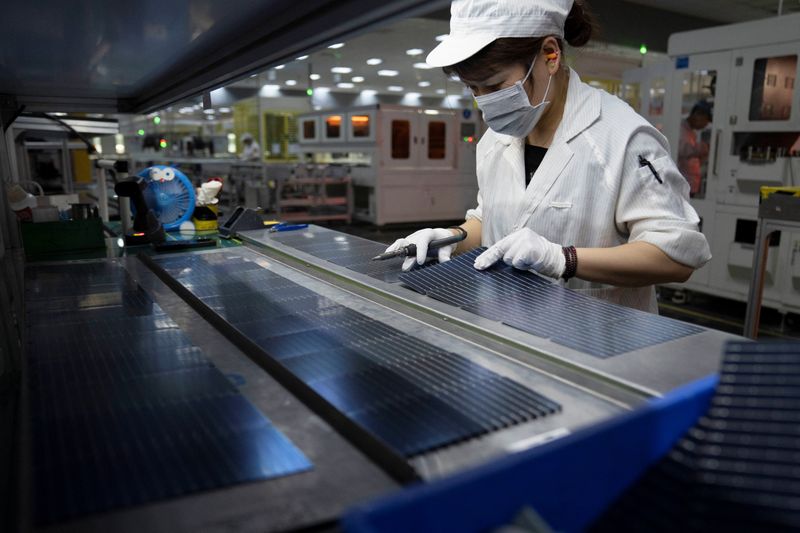China’s May factory activity likely expanded at steady pace, recovery still fragile
2024.05.30 00:39
By Joe Cash
BEIJING(Reuters) – China’s manufacturing activity in May likely grew at a similar pace to the previous month when it barely managed to stay expansionary, a Reuters poll showed on Thursday, reinforcing the fragile nature of the recovery in the world’s No.2 economy.
The official purchasing managers’ index (PMI) was forecast at 50.4 in May, unchanged from April, according to the median forecast of 33 economists in the poll. The 50-point mark separates growth from contraction.
One third of respondents forecast manufacturing activity cooled this month, including Standard Chartered (OTC:), who returned the lowest reading of 50.1. Conversely, ING forecast market conditions ticked up to 50.8 this month, and Goldman Sachs returning a reading of 50.6, just above Barclays’ 50.5 forecast.
Taken together, the contrasting forecasts underlined the heightened uncertainty about China’s growth outlook as authorities continue their efforts to stabilise the crisis-hit property sector, which remains a major drag on the economy.
China’s economy blew past expectations to post growth of 5.3% in the first quarter, and a string of recent economic indicators for April including factory output, trade and consumer prices suggest the $18.6 trillion economy has successfully navigated some near-term downside risks.
But analysts say the jury is still out on whether the bounce is sustainable.
Sentiment-based surveys have often presented a more negative picture of the economy than some of the hard data, probably because China’s stuttering post-COVID recovery continues to weigh heavily on factory owners struggling with weak demand at home and overseas.
Retail sales last month, for instance, grew at their slowest pace since December 2022, when Beijing’s strict zero-COVID curbs were in place, and new home prices fell at their fastest rate in nine years, keeping alive calls for further policy support.
The problems in the distressed property sector have had a negative impact across broad areas of China’s economy, and have slowed Beijing’s efforts to shift its growth model more towards domestic consumption from debt-fuelled investment.
China this month unveiled ‘historic’ steps to stabilise the property market, but analysts say the measures fall short of what is required for a sustainable recovery.

The IMF on Wednesday said it saw “scope for a more comprehensive policy package to address property sector issues,” as it revised up its China growth forecast by 0.4 percentage points to 5% for 2024 and 4.5% in 2025.
The official PMI will be released on Friday. The private Caixin factory survey will be released on June 3, and analysts expect its reading to edge up to 51.5 from 51.4.








